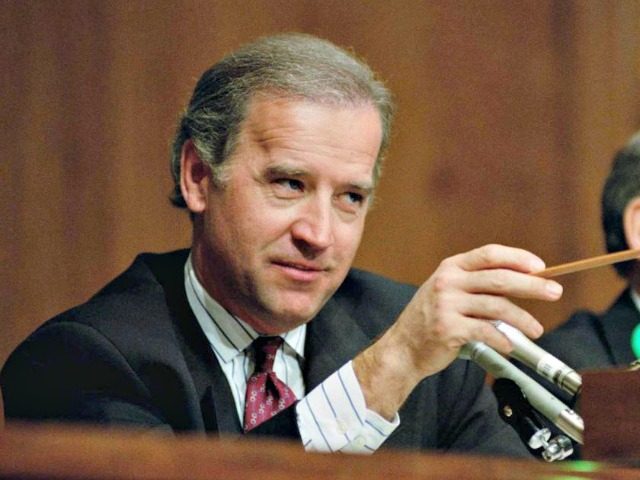Former Vice President Joe Biden is abandoning his decades-long support for the federal death penalty as he seeks the 2020 Democratic presidential nomination.
In a wide-sweeping criminal justice reform plan released on Tuesday, the former vice president called for the elimination of the federal death penalty. Biden, who led the effort to expand capital punishment amid rising crime rates in the 1990s, couched his new-found opposition to the death penalty in terms of protecting the innocent.
“Over 160 individuals who’ve been sentenced to death in this country since 1973 have later been exonerated,” the plan states. “Because we cannot ensure we get death penalty cases right every time, Biden will work to pass legislation to eliminate the death penalty at the federal level, and incentivize states to follow the federal government’s example.”
Even though advancements in DNA analysis having made such instances nearly non-existent, Biden proposes that individuals convicted of heinous crimes “instead serve life sentences without probation or parole.”
The plan comes as Biden is facing increased scrutiny for his law and order record. Social justice activists, in particular, have centered their criticism on his tenure leading the Senate Judiciary Committee in the 1990s, which he used to author the 1994 crime bill. Activists have seized on the bill, which has been recognized to have targeted black American males for higher prison sentences, as proof that Biden created the current system of mass incarceration.
In May, shortly after announcing his presidential bid, Biden was confronted by protesters in Nashua, New Hampshire, with that very accusation. In the face of the protesters, the 76-year-old former vice president stood defiant, saying the notion his legislation “generated mass incarceration” was wrong.
Although the bill is controversial for its effects on the prison population, few have noted the impact it has had on the death penalty. Prior to the law, there were only a certain of number of federal offenses that were eligible for the death penalty. After Biden and his allies were done crafting the legislation, however, more than 50 new federal offenses were created under which the death penalty could be pursued as punishment. Among the list of new crimes included murders related to drug dealing, drive-by shootings, and the killing of a law enforcement office, along with others.
Biden, who has previously called the crime bill his greatest achievement, even boasted about the new death penalty offenses when pushing the measure through Congress.
“Let me tell you what is in the bill, and I’ll let you all decide whether or not this is weak,” he said during a speech on the Senate floor in 1992. “Let me get down here a compendium of the things that are in the bill. One, the death penalty. It provides 53 death-penalty offenses. Weak as can be, you know?”
“We do everything but hang people for jaywalking in this bill,” Biden added. In the lead up to passage, he also characterized the legislation as the best weapon available against the “predators on our streets” who showed they were ‘”beyond the pale” through their crimes.
Biden continued to support the death penalty after the legislation passed and its effects were beginning to be felt. In 2000, during a Senate Judiciary Committee hearing on a post-conviction DNA testing, Biden reiterated his support for the death penalty and dismissed question over the morality of capital punishment.
“I support the death penalty,” he told the committee. “Let me put it this way: I don’t oppose the death penalty on moral grounds, but I have been fastidious … that if you are going to have a death penalty, you had better go out of your way to make sure you don’t execute an innocent person.”
To that end, Biden argued expanding the use of DNA testing and ensuring plaintiffs had the best legal help available would go a long way.
On Tuesday, Biden did not elaborate on his plans for how to “eliminate” the death penalty. If elected, it is certain he would face major obstacles to achieving that goal. Any major change to the existing federal penal code would require congressional approval. Currently, there is no indication that enough support exists, within either party, for abolishing the death penalty. Despite the Democrat’s 2016 platform calling for such an act, the issue is very much divisive between moderates and progressives.
There would also likely be political consequences for Biden and the Democrats if they attempted to push such a measure through Congress. According to polling by Gallup, 56 percent of Americans support the death penalty in cases where the criminal is convicted of murder. On the broader question of the death penalty being morally tolerable, an even larger majority of Americans — 60 percent — agreed it was an acceptable form of punishment.
Biden’s criminal justice reform comes only weeks after the frontrunner pledged to cut the U.S. incarceration rate by more than 50 percent if elected president. It is unclear if his proposal, which includes the abolition of all mandatory minimum sentences and ending incarceration for drug offenses, will meet that goal.

COMMENTS
Please let us know if you're having issues with commenting.